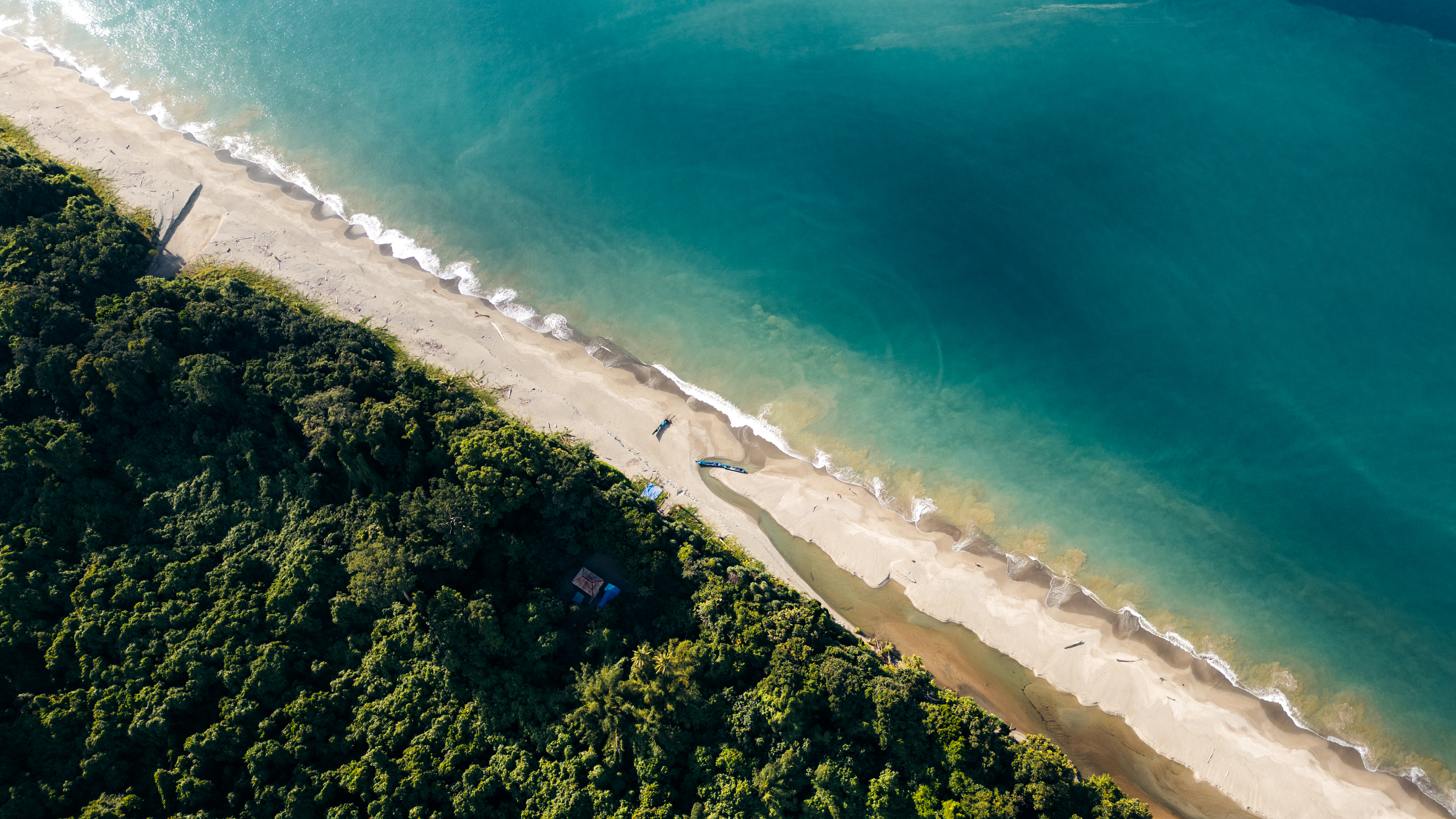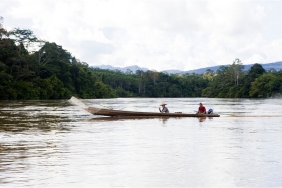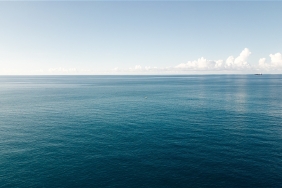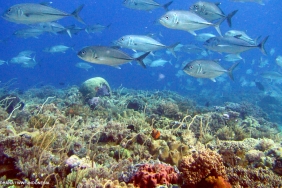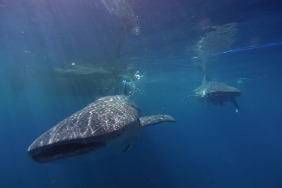THIRTY-YEAR REFLECTION ON THE MANAGEMENT OF INDONESIA'S MARINE PROTECTED AREAS
Jakarta (10/5) - Thirty years of efforts to conserve coastal waters and small islands in Indonesia, the Ministry of Maritime Affairs and Fisheries along with WWF-Indonesia and Coastal and Ocean Journal (COJ) organized the National Symposium on Conservation of Coastal Waters and Small Islands on May 9-10, 2017 at Mina Bahari IV Building, Jakarta. Lessons learned and tangible results of the establishment, benefits and management strategies of coastal waters and small islands conservation in Indonesia became the main discussion with experts and practitioners.
The Indonesian government is committed to establishing and managing 20 million ha of Marine Protected Areas (MPAs) by 2020. Overfishing and destructive fishing activities, pollution from watersheds, unplanned coastal development, and climate change are threatening factors to the health of marine ecosystems. The management of a small portion of marine water areas within the MPA system is expected to protect damaged habitats and biodiversity to recover and provide sustainable ecological, social and economic benefits for the community. "As of December 2016, the area that has been established reached 17.98 million hectares with a total of 165 MPAs spread from Sabang to Merauke. However, it is estimated that less than 15% of the existing MPAs have met their management targets". This was stated by Brahmantya Satyamuti Poerwadi, Director General of Marine Spatial Management, Jakarta (10/5).
The level of threats to Indonesia's ecosystems and seas is the highest in Southeast Asia and can cause losses of up to billions of dollars. Meanwhile, LIPI data in 2016 describes that there are only 5.32% of all coral reef areas in Indonesia that are still in very good condition and more than 30% are in poor condition. "Experts and practitioners agree that MPAs are one of the best solutions to reduce threats to marine ecosystems and protect important habitats for fish to spawn, grow, develop and find food, so that communities around MPAs benefit from healthy fisheries," Brahmantya reiterated.
In this symposium, there were 7 keynote speakers related to policies, success stories, lessons learned, and management of marine protected areas and more than 102 presenters from academics, practitioners, and related institutions presented lessons learned from the field regarding the ecological, social, economic and cultural benefits felt by the community as a result of the existence of MPAs in their area. Case studies of management strategies and the status of coastal ecosystems in various locations in Indonesia, the impact of human activities on ecological and social conditions and the impact of climate change on ecological conditions are also themes of discussion.
Wawan Ridwan, Director of WWF-Indonesia's Coral Triangle Program, believes that the condition of the ocean and its resources, which have continued to decline in recent decades, can be improved to return to a level of sustainability that can sustain human life. "Science-based MPA design and distribution of social and economic benefits, and effective implementation of MPA management are key factors for successful management, because they can provide large benefits with small management costs," he explained.
One of the challenges faced by stakeholders and managers is to create MPA management designs and strategies that can meet all needs in a balanced manner, between conservation and utilization. In an effort to encourage the effectiveness of MPA management in Indonesia and transform fisheries, WWF-Indonesia developed the "MPAs for sustainable fisheries" framework. This framework is based on various scientific studies, lessons learned and WWF-Indonesia's success stories in protecting and managing marine resources in Indonesia. Therefore, this framework can be adopted and replicated in various marine areas in Indonesia.
The learning that was reinforced by various scientific breakthroughs and exchanges between researchers in this activity resulted in a proceeding and recommendations for action plans for the management of Coastal Waters and Small Islands Conservation in Indonesia. Some selected papers will also be published in the Coastal and Ocean Journal - Bogor Agricultural University.
-o0o-
For more information, please contact:
- Anton Wijonarno, MPA for Fisheries Manager, WWF-Indonesia
Email: awijonarno@wwf.id, Phone: +62 811 910 970
- Dwi Aryo Tjiptohandono, Marine and Fisheries Campaign Coordinator, WWF-Indonesia
Email: daryo@wwf.id, Hp: +62 811 480 3343
- Directorate General of Marine Spatial Management's Cooperation, Public Relations and Services Division
.
Email: humas.prl@kkp.go.id, Tel/Fax: (021) 3513300 ext 6117
Note to Editor:
- The National Symposium on Aquatic and Small Island Conservation was attended by more than 50 participants. From 217 registered papers, about 102 papers were presented in 2 days with 7 keynote speakers who discussed 3 themes, namely the establishment, benefits and management strategies for the conservation of coastal waters and small islands in Indonesia. Visit www.simnas2017.konservasi-perairan.org
- Presentation materials can be downloaded at http://simnas2017.konservasi-perairan.org/publikasi for both presenters and keynote speakers.
- Keynote speakers at the 2017 National Symposium on Aquatic and Small Island Conservation are:
- Dasril, S.Sos (Head of Pariaman City Fisheries Service)
- Ahman Kurniawan (Head of the Monitoring and Conservation Center for Marine Resources and Fisheries in the Southern Region Pangumbahan, West Java Provincial Maritime and Fisheries Service)
- Prof. Peter Mumby (University of Queensland)
- Dr. Ir. Toni Ruchimat, M.Sc (Head of Fisheries Research Center, KemenKP)
- Wawan Ridwan (Director of Coral Triangle Program- WWF-Indonesia)
- Brahmantya Satyamurti Poerwadi, S.T (Director General of Marine Spatial Planning, KemenKP)
- Udhi Eko Hernawan (Oceanographic Research Center - Indonesian Institute of Sciences)

